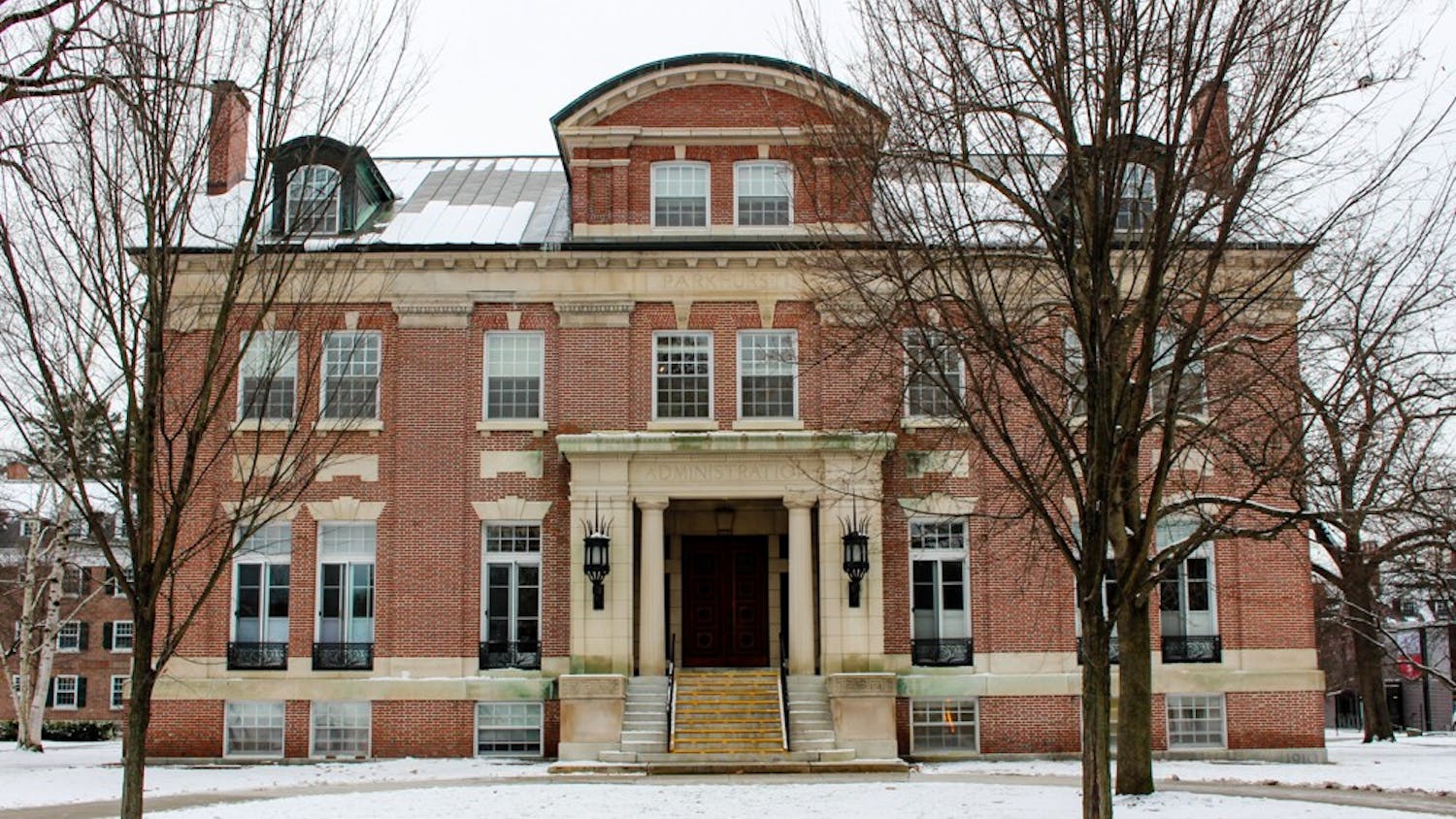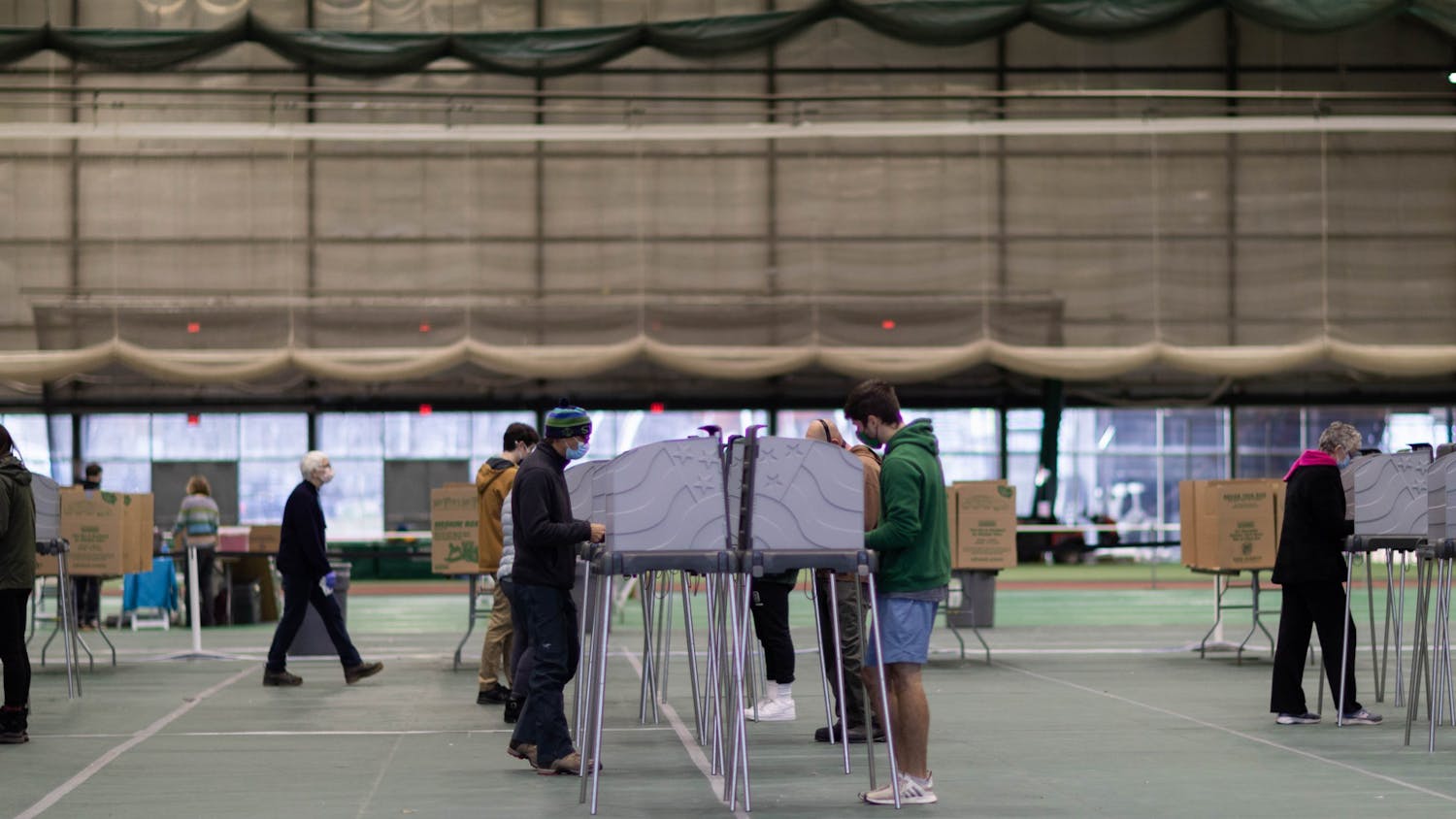When I virtually signed Dartmouth’s “Community Expectations” agreement last summer, I didn’t think much of a certain line. I agreed to “receive a vaccine for COVID-19, should one become available that is both FDA- and Dartmouth-approved,” if I wanted to live on campus and access Dartmouth’s facilities. At that point, a COVID-19 vaccine seemed years away — a promise overshadowed by the stress of preparing for a virtual academic year.
Fast forward to a little over a week ago. My older sister Valeria, a senior nursing student at the University of Connecticut, bustled through our front door after working a 12-hour shift at our local hospital. She returned a different person than when she had left: Valeria came home as a vaccinated health care worker (well, she received one dose of the Moderna vaccine).
Cocooned in a blanket in front of a space heater was how I found my sister the next day. Her side effects included chills and a mild fever. But Valeria was firm about how she felt.
“I wouldn’t trade the mild aches and chills for getting the vaccine,” she said.
Of the roughly 28 million first doses that the U.S. has distributed, New Hampshire has received around 100,000 as of Jan. 12. The state is distributing the vaccine in phases, and as COVID-19 task force co-chair Lisa Adams stated in Dartmouth’s “Community Conversations” livestream on Jan. 7, the timeline for vaccinations at Dartmouth will be largely based on age groups. Most Dartmouth students will likely fall into Phase 3b of New Hampshire’s vaccine distribution plan, which might not begin until May at the earliest.
Nevertheless, some Dartmouth students have already been vaccinated. Siddhant Parwal ’23 is an EMT in Connecticut, and per his home state’s rollout plan he was able to receive the vaccine as a health care provider. Parwal said that for him and his family, getting vaccinated made sense.
“When you have a COVID patient, there’s a whole slew of procedures and that worry in the back of your mind,” Parwal said. “At least I know I’ll be able to keep my family safe to some degree when I come home.”
Parwal received the first dose of the Pfizer-BioNTech vaccine and experienced mild side effects — a slight headache and sore arm. He is set to receive the second dose before he returns to live on campus for the winter term. Although Parwal will be completely vaccinated, he expects that he will still follow the College’s COVID-19 guidelines.
“There’s not that much data on transmission,” Parwal said, explaining that getting a vaccine does not guarantee that he won’t infect another individual. “In the grand scheme of things, if I’m one person of over 2,000 on campus — it’s not enough to not quarantine.”
Parwal said that he is optimistic about a return to normalcy, especially if a system for mass vaccination can be effectively implemented.
According to Brittany Cleary ’21, executive director of Dartmouth EMS, New Hampshire’s Phase 1a rollout enables frontline health care workers — which includes DEMS members — to receive the vaccine.
“I felt like it was [DEMS’] responsibility as a first responder organization to give [EMTs] that option, and then they could choose whether or not they wanted to go through with that vaccine,” Cleary said.
At this point, around 20 Dartmouth EMTs have been vaccinated, including Cleary. She received Moderna’s first dose at a drive-thru location in Lebanon, experiencing only arm soreness after the shot.
Although I tend to get overly optimistic, Cleary helped me recognize that these initial vaccinations do not translate to an immediate end to the pandemic. She stressed that she will still be following all COVID-19 guidelines on campus, as will other vaccinated Dartmouth EMTs.
“I’m also aware that when people see me they aren’t gonna know that I’m vaccinated, so I want to demonstrate externally that I’m taking this seriously,” Cleary said.
Ultimately, Cleary believes her vaccination will allow her to be a more effective health care provider, something for which she is grateful.
“I can continue responding to medical emergencies more safely,” Cleary said, “and understand that I’m now in this very privileged position of being at a much lower risk of contracting COVID-19.”
Many Dartmouth students don’t work in the health care field, though, and are unsure when they will be vaccinated. Annaliese OuYang ’23 said that if given the opportunity, she would receive the vaccine. However, she pointed out that not everyone shares her perspective.
“I recognize that there are people on campus who might not want to take the vaccine, though I would hope that the majority would want to take it,” OuYang said, adding that she is pleased to see health care workers receiving the vaccine first.
Like Parwal, OuYang said that the vaccine distribution thus far has made her optimistic that the return to normalcy is on the horizon — even if that timeline remains largely unknown.
Nationwide, vaccine distribution is already slower than projected, and with the new mutated COVID-19 strain, the vaccine cannot immediately bring us all back together on the Green or around the tables on FFB. That being said, I think that we can start feeling excited about what the future might hold. And should Dartmouth students have the opportunity to receive early vaccines, I will, for once, listen to my older sister:
“I would recommend that people try to get the vaccine if they can. It is a privilege to receive it, and by getting it you’re ultimately helping build toward herd immunity.”




